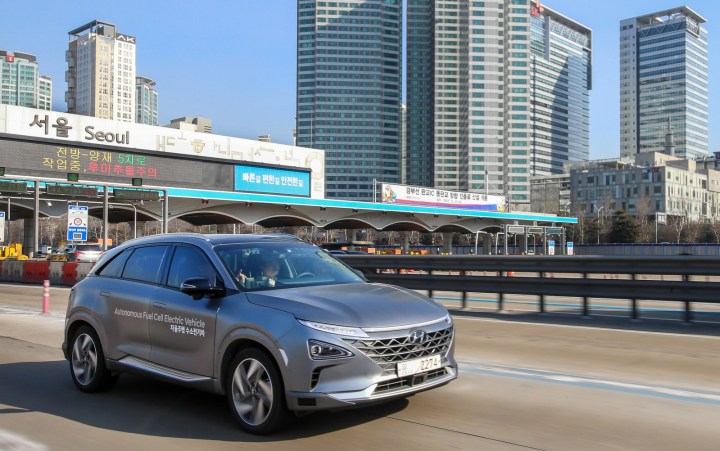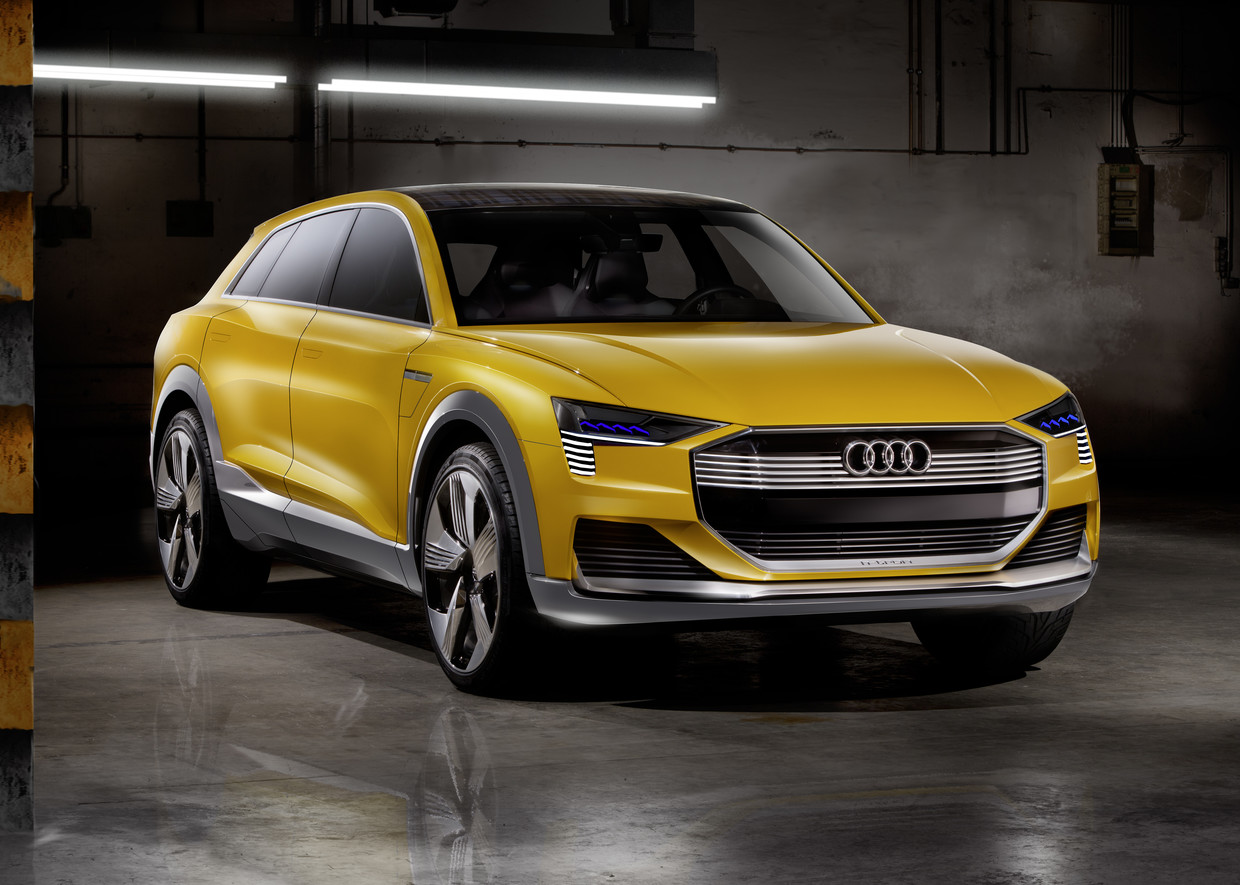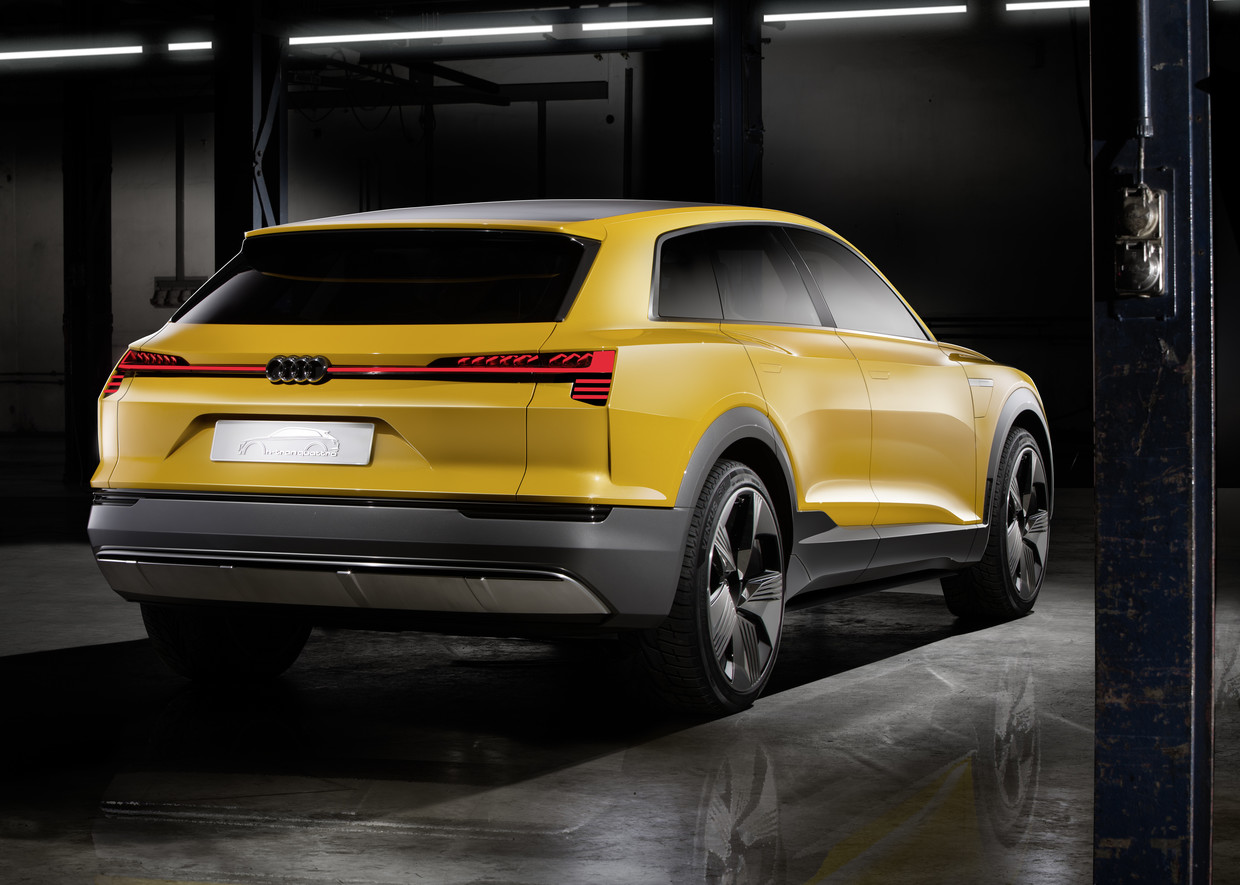Audi will be the Volkswagen Group’s focal point for hydrogen fuel cell technology, according to AutoCar. Audi CEO Bram Schot stated the refocused h-tron fuel cell development effort is due to concerns about sufficient battery supplies for electric vehicles.
“We really want to speed it up,” Schot said. “We are going to put more priority into hydrogen fuel cells – more money, more capacity of people and more confidence.”
In addition to his statement of refocused energy source priorities, Schot also confirmed Audi would unveil a prototype sixth-generation fuel cell later in 2019. A limited-production fuel cell electric vehicle (FCEV) may be available for lease as early as 2021 in a pilot program, but there is no firm timeline for volume FCEV production. Schot stated he is confident FCEV could be in volume production by the late 2020s.
Audi introduced an h-tron fuel cell concept quattro model in 2016 at the Detroit Auto Show. The 2016 concept vehicle had two electric motors, one on each axle, with a combined 230 kW or 308 horsepower output.
Audi previously stated the division’s plan to introduce as many as 12 all-electric vehicles by 2025. If sufficient quantities of batteries to power EVs aren’t available, fuel cells are the other choice.
Referring to electric vehicles in general, Schot said, “If this modality is here to stay, then you have to try to find the most effective and efficient way to drive electric. And then you come to hydrogen fuel cells.”
Audi will focus on increasing driving range and lessening the need to recharge vehicles in cold weather and during long trips. At the auto show in 2016, Audi claimed the h-tron Quattro concept could travel up to 372 miles and refuel in under four minutes.
The sixth-generation hydrogen fuel cell system could be incorporated into hybrid systems that include a battery. One proposed hybrid model could travel up to 93 miles on battery power alone based on a 35 to 40 kWh battery capacity.

Hyundai and Audi are working together on the new fuel cell technology. The two auto companies announced a cross-licensing agreement in 2018. In February 2018 Hyundai introduced three fuel-cell-electric, autonomous versions of the Nexo SUV, with a 372-mile range per charge, similar to the original h-tron’s capability.
Editors' Recommendations
- Hyundai’s hydrogen fuel cell truck makes hauling freight green and glamorous
- Toyota uses hydrogen fuel cells to power one of its Japanese factories
- Hyundai Nexo is the first fuel-cell vehicle crash-tested by the IIHS
- The Skai is a multipurpose flying car powered by hydrogen fuel cells







